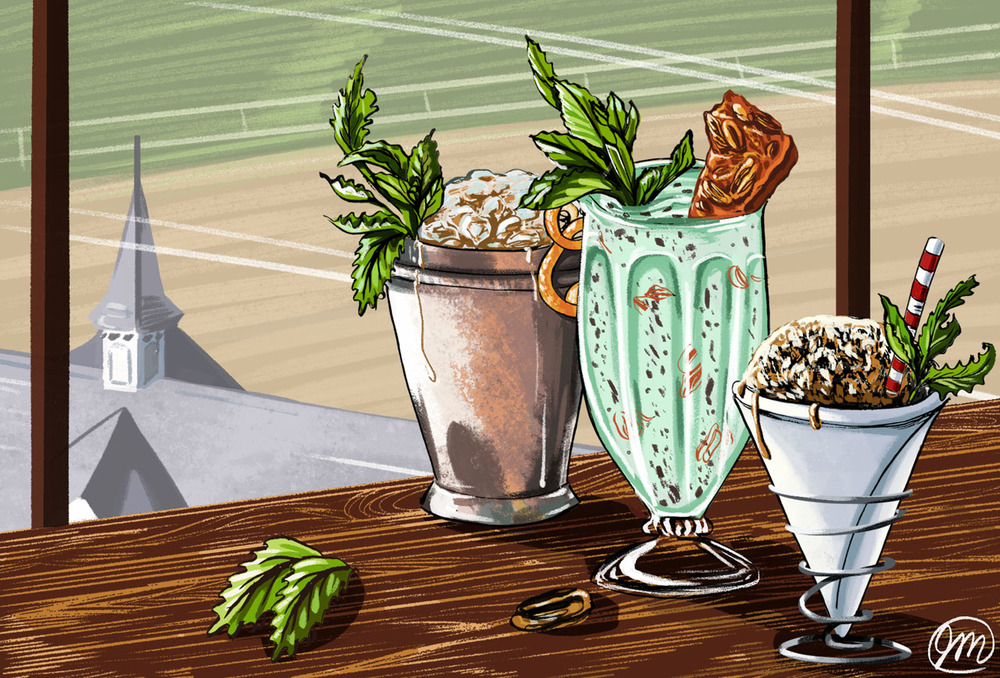Writing As Momentary Witness

I ate a dead man’s tiramisu this past summer. I did not plan such a macabre act; one rarely does. My husband Ryan and I had just become new residents to New York City and new regulars to a French patisserie and café two blocks from our apartment—when the owner and head chef, Jean-Francois, dropped dead from a heart attack. He was forty-five. I had seen Jean-Francois several times. A no-nonsense man, he brought out warm trays of croissants, scones, and baguettes, even in the afternoon—only stopping on occasion to bicker in French with a clutch of men who sat by the pastry case.
“The cake you made was perfect,” I once heard a gushing customer say to him. “My friend loved it! I mean, it really made her party.” Jean-Francois waved him off and returned to the kitchen. I took his general curtness as a kind of continental humility, but I heard that other locals found him rude and refused to patronize the café. That anyone would require friendliness from their neighborhood French pastry chef strikes me as a sure sign of a fragile ego. He had desserts to make, goddamn you.
Two days after Jean-Francois’s death, Ryan and I stopped by the café. There were no costumers. Behind the counter, Nora, Jean-Francois’s wife, and Carlos, one of the baristas, stood by each other, unnaturally stiff and silent. Out of the corner of my eye, I saw large vases of fresh flowers lining the ledge along the windows. At what felt like the same moment that I recognized the scent and scene as funereal, Carlos said, “The chef died on Monday night.” It was Wednesday afternoon. Nora dropped her head and nodded a sad yes. I clutched my chest. Ryan released a disbelieving, “Oh, no.” We offered our condolences.
When we turned to leave (ordering lattes seemed comically insensitive), Nora urged us to stay: “I wanted to open today.” As she made our drinks, I noticed the sparse contents of the pastry shelf. “What here was made by your husband?” I asked. Nora’s face softened to a smile. “All of it.” Soon, his final creations, his last earthly delicacies, would expire—turning stale or moldy and finding the garbage. Consuming the work of this dead man’s hands seemed more just, if morbid, to me. Nora pointed out his two favorites: the tiramisu and the fudge cake. We took a slice of each. The chef’s widow looked on, satisfied and devastated. We raised our first forkful: To Jean-Francois. Bon appétit.
Seemingly opposite sensations merged in this singular, saturated encounter: the bitter sting of eating the last confections of the deceased; the sensual delight of tasting these same sweets; momentary pleasure amidst an atmosphere thick with grief; the sudden intimacy of ingesting remnants of a near-stranger; a woeful and fleeting communion with the dead.
This encounter plunged me into the immense, anguished heart of the ordinary (after all, what is more mundane than food and death?). It was full of the sensorial: daylilies, cinnamon, rum, sullen eyes, trembling voices; it was full of paradox: life, death, blessing, curse, sweet, salty. And I was full of the knowledge that I was but passing through, a momentary witness, briefly touching the density of another’s grief. The late Irish poet John O’Donohue described beauty as “rounded substantial becoming.” In this sense, the café encounter was beautiful for me. Not pretty, not nice, but rounded, substantial, becoming.
In my essay “The Golden Hour” (NAR issue 302.1), I try to describe these kinds of moments in relationship to aging and dementia, offering them as an aesthetic-moral framework that pushes beyond the flat and aphoristic. These ripe moments are not usually dramatic. It may be identifying a hunger, an ache. It may be hearing anew a series of notes. It may be discovering the beauty of an old word.
To resist resolving existential dissonance is perhaps the writer’s biggest challenge—especially in an era of rapidly decaying public discourse in which the thinnest emotional palate is most readily catered to. To grow aware of the darkly luminous and the luminously dark in the course of a day and to receive these moments and ponder them—seem fundamental to any artistic endeavor. To attentively place narrative flesh around daily bones (dying, eating) is among the writer’s most vital and humbling tasks.
I imagine Jean-Francois on the day of his death. His warm hands set to work, in the same fashion a thousand times before, just before daybreak, on the magisterial Amsterdam Avenue. This time, a finality—unfamiliar to he whose delight is edible—pressed upon him. Alone, he sprinkled, stirred, rolled, folded, pinched, repeated. He permitted the glint of a smile to widen, a happiness he rarely indulged, for this savory business of feeding mouths unseen.
Recommended
Nor’easter
Post-Op Appointment With My Father
Cedar Valley Youth Poet Laureate | Fall 2024 Workshop






